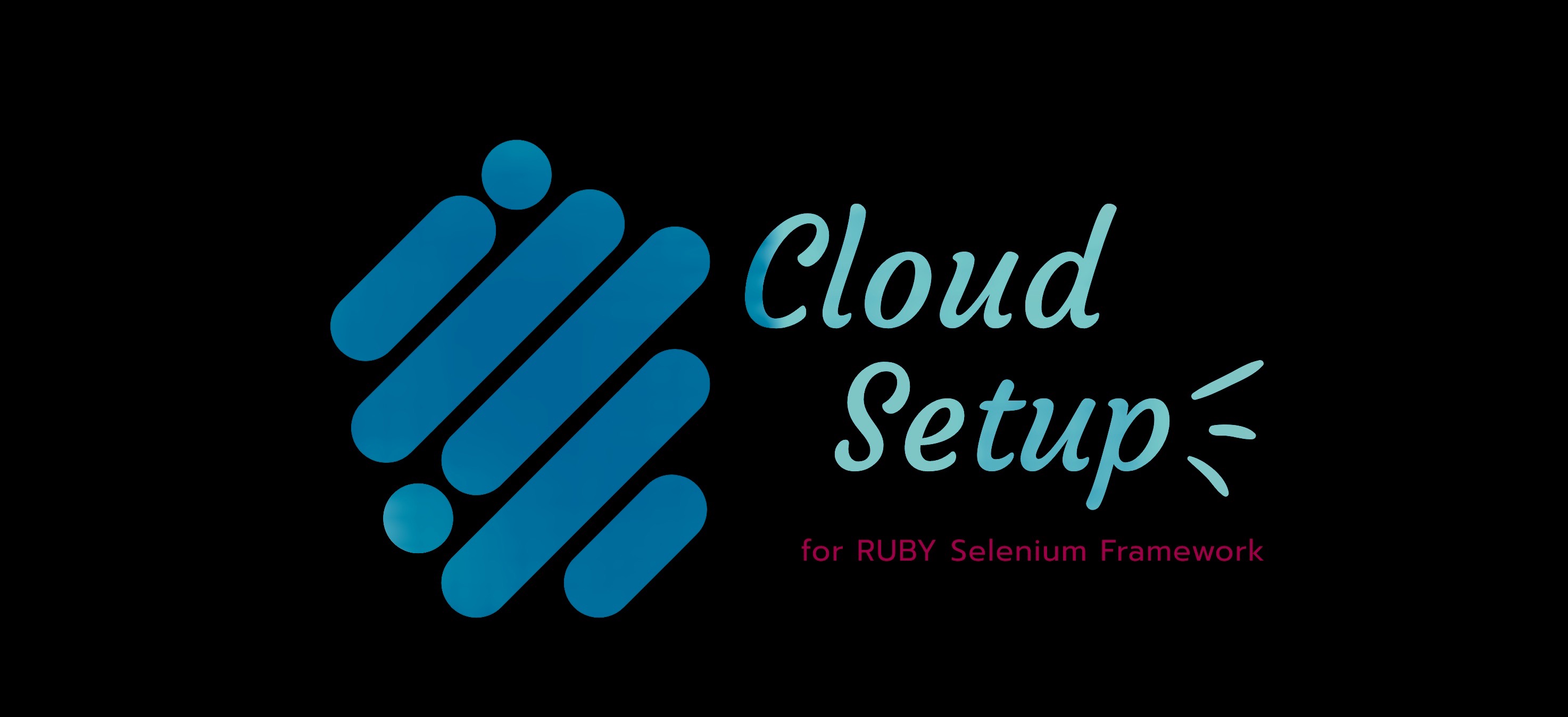Cloud Automation Setup
Complete setup to run UI Automation in cloud.

To run web automation suites in the Jenkins, we need to ensure that the following items are preinstalled in the Linux & Jenkins server.
- Need to have Lanugage specific requirements or specific docker images.
- Need to have the required browsers in which automation suites are going to run. (eg., Chrome, Firefox, etc.,)
- Need to have (Selenium) Drivers corresponding to the browsers. (When Selenium 4.0+ is released this drivers is need not to be installed separately, since it will have internal driver manager.)
- Each Jenkins slave (where UI automation is running) should have minimum 2GB ram and minimum 2 core processor with 1.2GHZ processor.
- Allure plugin to be added in Jenkins (For reporting purpose)
Installation Procedures: (may change over a period of time)
Language specfic requirements
Ruby:
Install latest version of ruby in the linux machine from here and then try installing bundler gem
gem install bundler
Once that is done, Install the RVM manager from here
(or)
Get the docker image which is ruby friendly. Sample docker image
Python:
Install the latest version of python in the linux machine from here and then install the pip package.
(or)
Get the docker image which is python friendly. Sample docker image
Browsers:
Chrome Installation:
The following will install latest chrome in linux
sudo apt-get install google-chrome-stable
Uninstall Chrome:
sudo apt-get purge google-chrome-stable
rm ~/.config/google-chrome/ -rf
Install Chrome with specific version:
wget https://repo.aosc.io/debs/pool/stable/main/g/google-chrome_78.0.3904.70-0_amd64.deb # URL to download the deb file
sudo dpkg -i google-chrome_78.0.3904.70-0_amd64.deb # name of the downloaded deb file
sudo apt-get -f install # To resolve the installation with dependencies
Browser Drivers:
Install Chrome driver:
version=$(curl -s https://chromedriver.storage.googleapis.com/LATEST_RELEASE)
wget -qP "/tmp/" "https://chromedriver.storage.googleapis.com/${version}/chromedriver_linux64.zip"
sudo unzip -o /tmp/chromedriver_linux64.zip -d /home/ubuntu/.rvm/gems/ruby-2.5.1/wrappers/chromedriver # in which ever location you want
sudo chmod 755 /usr/bin/chromedriver
sudo chown root:root /usr/bin/chromedriver
sudo chmod +x /usr/bin/chromedriver
Uninstalling chrome driver:
find / -name "chromedriver"
sudo rm -rf /usr/bin/chromedriver # remove all the paths listed in the above command
chromedriver -v # should not give any versions
Allure for jenkins:
https://www.wedoqa.com/2017/11/allure-integration-in-jenkins/
Plugins for Jenkins
https://wiki.jenkins.io/display/JENKINS/Rebuild+Plugin
https://jenkins.io/doc/pipeline/steps/allure-jenkins-plugin/
In the shell prompt in jenkins
For ruby
Add the following to use the ruby in shell prompt and then run.
#!/bin/bash -l
rvm list
ls
cd <path_to_the_project>
cucumber #or custom commands
For Python
Add the following to use the python from the shell prompt and then run.
#!/usr/bin/python3
python --version
cd <path_to_the_project>
pip3 install -r requirements.txt
headless=1 pytest -s -v -n 4
In Jenkins allure plugin configuration
In the results path give **/<path_to_your_allure_generated_folder>/ path to the allure.
Set the report path and allure configuration as allure-report.
Jenkins pipline
For Ruby
To integrate with jenkins pipeline use the following code.
pipeline {
agent { docker { image 'ruby:2.6.1' } }
stages {
stage('requirements') {
steps {
sh 'gem install bundler -v 2.0.1'
}
}
stage('build') {
steps {
sh 'bundle install'
}
}
stage('test') {
steps {
sh 'cucumber ...' # or custom methods
}
}
}
}
For Python
pipeline {
agent { docker { image 'python:3.7.6' } }
stages {
stage('requirements') {
steps {
sh 'pip install -r requirements.txt'
}
}
stage('build') {
steps {
sh '# python build command'
}
}
stage('test') {
steps {
sh 'pytest ...' # or custom methods
}
}
}
}